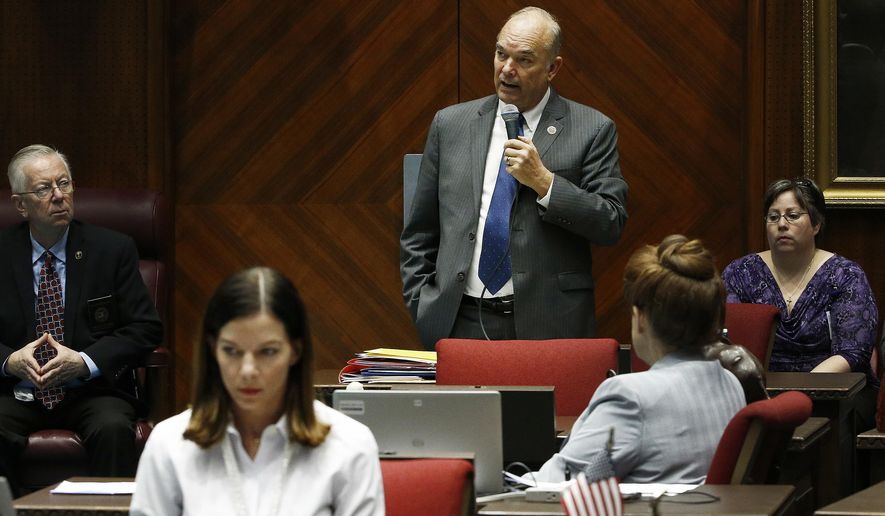
ATLANTA (AP) - Allegations of sexual misconduct against Kentucky lawmakers have become so common that the statehouse has seemed more like a frat house: Seven lawmakers have faced accusations, including four who settled secretly with a female legislative aide.
Voters’ response? Mostly, keep them in office.
Of the five lawmakers up for re-election this year, three easily made it through their party primaries and are favored to retain their seats in November. The other two chose not to run.
It’s not just Kentucky. An Associated Press review finds that 25 state lawmakers who have been accused of sexual misconduct are running for re-election or another office this year. Of those, 15 have already advanced to the Nov. 6 general election. Seven did not even face a challenger in the primary.
Cassaundra Cooper, who filed a sexual harassment claim against a former Kentucky lawmaker in 2013, wonders why voters would re-elect public officials accused of sexual misconduct, or simply choose to ignore the allegations.
“That shocks me,” she said. “Where is the empathy?”
In the wake of the Harvey Weinstein scandal - and the extraordinary growth of the #MeToo movement - any assumption that accused office holders would be political pariahs is not borne out on the state level. (Though by comparison, virtually every member of Congress accused of sexual harassment has resigned or opted against running for re-election.)
Kelly Dittmar, an assistant professor of political science at Rutgers University, said the relative political success of accused state lawmakers suggests that voters are unsure how to respond. Does a private failing disqualify someone from serving in public office?
“We don’t have an answer for that,” she said....
That is true even in states where voters have a history of supporting female politicians and traditionally liberal issues.In California, of the six state lawmakers who faced misconduct allegations and ran for re-election or another office, four advanced to the general election. That includes two women.Assemblywoman Cristina Garcia, an early advocate for legislative changes in support of the #MeToo movement, was the top vote-getter in a crowded June primary for her Los Angeles-area district. She took a three-month leave of absence earlier this year after a former legislative staffer accused her of groping him in 2014.Investigators initially cleared Garcia of the charge, but her accuser appealed the findings and the investigation has since been reopened.In November, Garcia will face Republican Mike Simpfenderfer, a 56-year-old mortgage banker who sits on the board of a national nonprofit dedicated to helping survivors of sexual assault. He was inspired years ago to become an advocate after family members told him of their experiences with sexual assault.“Through that tough experience, it opened my eyes to what goes on,” Simpfenderfer said. “I have a blunt message: Men, it’s time to start standing up.”Simpfenderfer said some politicians facing harassment allegations will do what he considers the right thing and resign, but others try to hang on to power. He called
